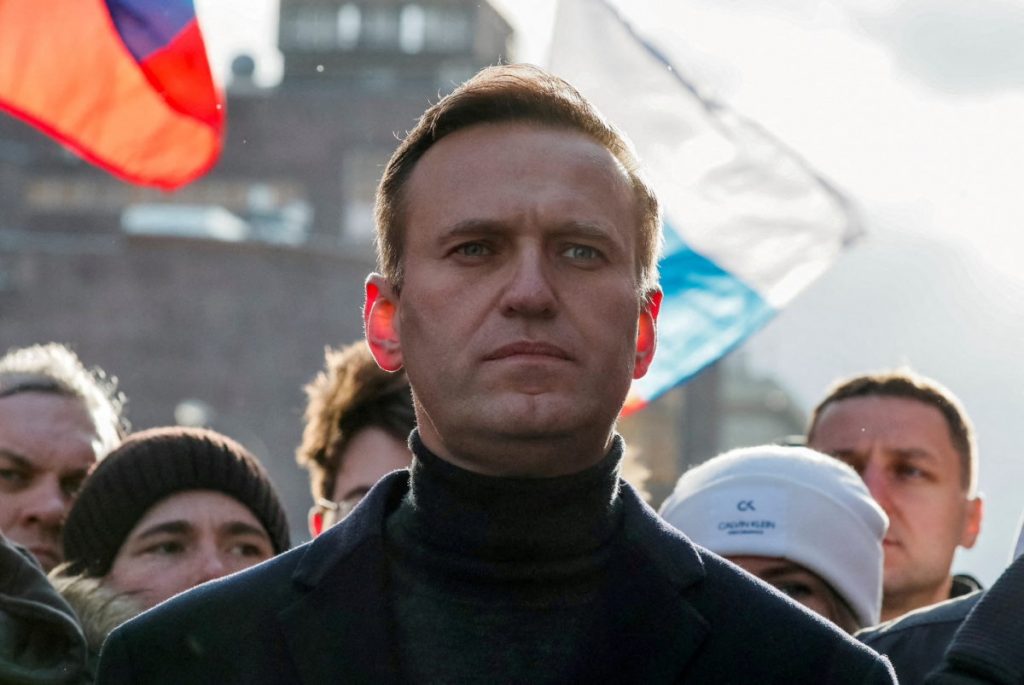The death of Alexei Navalny, the man Vladimir Putin feared the most, is not only mysterious but seems likely to be the end of political dissent in Russia. The fiercest pro-democracy voice in the despotic state has turned silent forever. The 47-year-old, who was serving a 19-year sentence on charges of extremism, was moved in December from his former prison in central Russia to a ‘special regime’ penal colony — the highest security level of prisons in Russia — above the Arctic Circle. He felt unwell after a walk and collapsed, a prison release said.
The news drew widespread condemnation and outrage from most of the democratic world. US President Joe Biden said that Washington doesn’t know exactly what happened, “but there is no doubt that the death of Navalny was a consequence of something Putin and his thugs did.” Ukrainian President Volodymyr Zelenskyy was more direct in his reaction: “It is obvious that he was killed by Putin.” Russia saw an outpouring of grief with thousands of mourners laying flowers in honour of their hero. Over 400 individuals have been arrested during such gatherings in 32 cities, as reported by the rights organisation OVD-Info.
Navalny, a former lawyer, gained recognition through his blogs that uncovered widespread corruption within the Russian elite. He criticised the ruling class as “crooks and thieves” and specifically targeted Putin’s inner circle. With the use of the internet and drones, Navalny highlighted the extravagant lifestyles of high-ranking officials, shedding light on their vast wealth and luxurious properties. Following the protests against Putin in December 2011, sparked by allegations of electoral fraud, Navalny was among the first to be detained.
In 2021, Navalny earned the admiration of many within Russia’s opposition circles for willingly coming back to Russia from Germany, where he had received medical treatment for what Western laboratory tests confirmed as an assassination attempt using a nerve agent in Siberia. Upon his arrival in Moscow, he was immediately arrested. Although the subsequent mass protests were remarkable in terms of their regional scope, they were not sufficient to pose a significant challenge to the Kremlin. The reason for this could be that Navalny appealed mostly to the masses in Moscow and St. Petersburg. Beyond the urban areas, Russia is a different place and has few takers for Western liberalism. Ultimately, the authorities outlawed Navalny’s organisations within the country and either arrested or compelled their employees to leave Russia.
Navalny’s demise, though shocking, was not entirely unexpected, for there is a history of such deaths in the modern Russia of Putin. A very recent story in The Independent of UK has claimed that the extra security prison that Navalny was held in had been visited by a very high level group of intelligence operatives from Moscow only two days prior to his death. Poisoning, exposure to fatal nerve agents, firing from close range, fall from window — Putin foes have faced it all during his nearly quarter century long rule. The mercenary Yevgeny Prigozhin and key members of his Wagner private military group were killed in a plane crash last August. This incident occurred exactly two months after Prigozhin initiated an armed rebellion, which Putin condemned as both a betrayal and an act of treachery. Although Prigozhin did not criticise Putin directly, he did express his dissatisfaction with the Russian military leadership and raised doubts about the motivations behind invading Ukraine. A US intelligence assessment concluded that the crash, resulting in the loss of all 10 lives on board, was deliberately caused by an explosion. Several political leaders, journalists and former spies, who dared to challenge Putin, have met with similar fate.
With Navalny’s untimely death, the fragmented Russian opposition has been deprived of its foremost figurehead while Putin readies himself for the upcoming March presidential election – a predetermined ballot that will ensure the continued reign of the former KGB spy until at least 2030.
It’s time Navalny’s supporters recall what he had once told CNN: “If they decide to kill me then it means we are incredibly strong and we need to use that power and not give up… We don’t realise how strong we actually are.”
